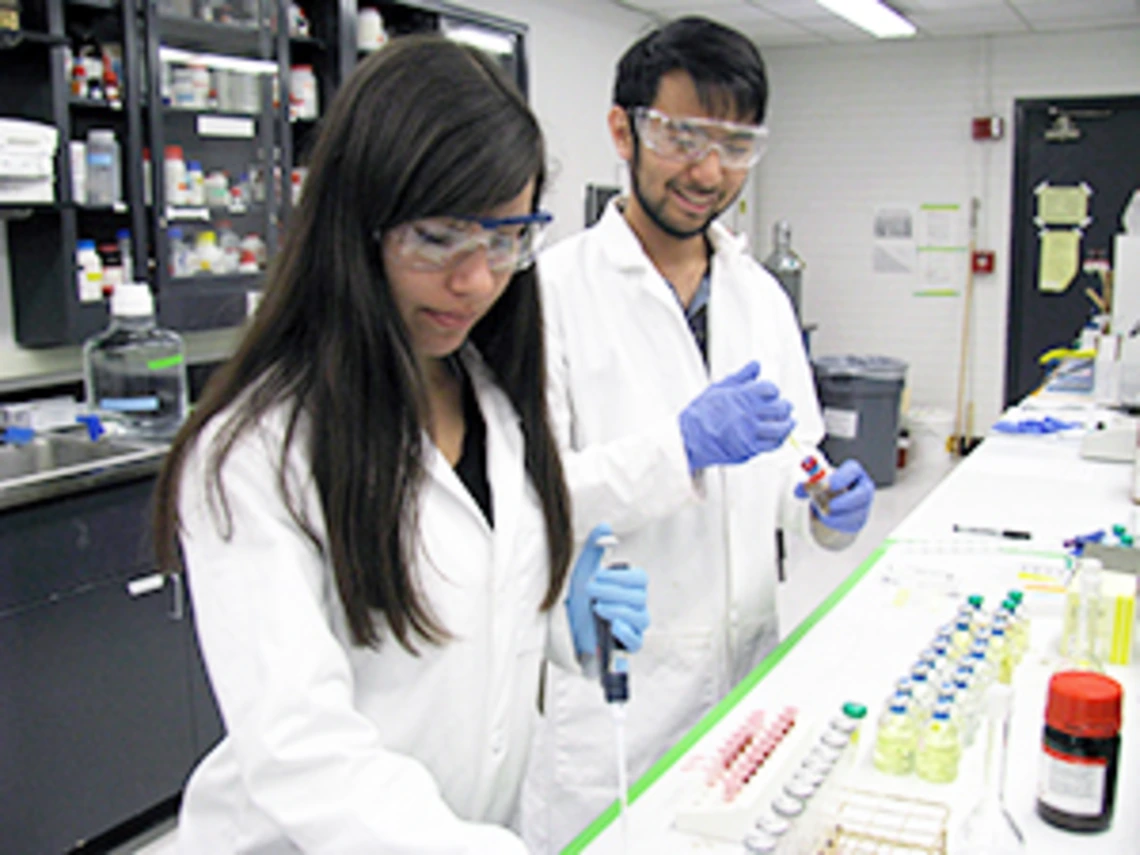Graduate Researchers Work to Reduce the Toxicity of Insensitive Munitions Compounds in Soil

Graduate students Warren Kadoya and Camila Madeira have made strides in finding out how to reduce the toxicity of remnants from insensitive munitions compounds, or IMCs, as part of a project Jim Field and Reyes Sierra have been working on for the past five years.
Kadoya and Madeira -- along with Field, Sierra and a few undergraduate students -- are working to identify specific microbes that break down toxic compounds in IMCs, and to determine the optimal conditions under which these compounds become irreversibly bound to soil.
"The idea is to remove the compounds from the environment by degrading them or by having them bind to organic matter in the soil,” Madeira said.
Toxic chemicals left behind by IMCs can contaminate groundwater and soil. According to Kadoya, to decontaminate soil, it must be removed and chemically treated or burned. This process can be costly and cumbersome.
"We could find a better solution if we have a deeper understanding of the fate of IMCs in the environment,” Kadoya said.
"And if we find microbes that are able to degrade them, we can develop technologies based on bioremediation,” Madeira added.
The pair was recently published in the journal Environmental Science & Technology, describing their findings. Their research found that the more organic carbon is in the soil, the higher the amount of incorporation, which reduces toxicity.
This is more than just a research project to both of these students, though.
"I come from Brazil," Madeira said. "We don’t have a lot of problems with explosives there, but there are a lot of problems with pesticides. It’s a motivation to study remediation."
Kadoya said he has always wanted to help with environmental disasters such as oil spills or contaminated water.
"I'm very lucky that I got a spot on this research team so I can contribute to this field of study," he said.
Both students agreed that a challenging aspect of their research is its interdisciplinary nature.
"We work with chemists, environmental scientists, and microbiologists," Kadoya said. "Everything is incredibly interconnected.”
Both Kadoya and Madeira, who have earned several scholarships, are currently working toward their PhDs and plan to graduate in the next few years.
"I got a scholarship through the Department of Defense, so I’ll have a job with them when I am done,” Kadoya said.
Madeira plans to work as a post-doctoral researcher and eventually become a professor back in Brazil.
